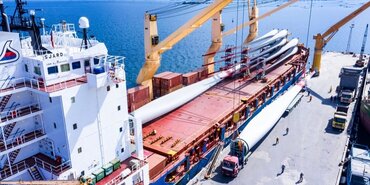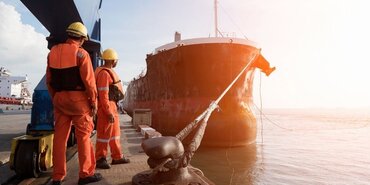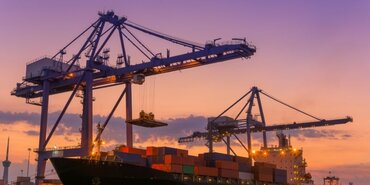Insurance in the eye of the storm

Dan Negron, Senior Underwriter at TT Club, reflects on the impact natural disasters have had on the insurance industry in 2017
"In 2017, we have witnessed the devastating effects of three hurricanes in the Atlantic - Harvey, Irma and Maria. Beyond their obviously more consequential and tragic social impact, these natural disasters have caused an estimated $100 billion worth of damage.
"Even at this stage, it is difficult to accurately predict the full extent of the costs to the insurance industry but significant damage was caused to homes, offices, factories, as well as infrastructure such as roads and bridges.
"Whether we attribute these weather events to climate change or the random acts of a volatile planet, these disasters have massive implications for the insurance industry, worldwide governments and the lives of millions of people.
"In the eye of Hurricane Harvey, the port of Houston, the eighth busiest container port in the U.S., was left relatively unscathed as traffic was diverted to other regional ports away from the path of the storm. Fortunately, thanks to sophisticated weather prediction technologies, warnings about Hurricane Irma were sent out early.
"Despite all precautions taken for Irma, the delay caused disruptions to the ocean freight industry, as well as the logistics sector. Days after Irma passed, intermodal shippers continued to face delays for cargo that needed rail transportation through the South Eastern US and the likes of Amazon struggled to keep its two day delivery promise. The six major ports that closed as a result of Irma handle one of every six containers going in and out of North America and as a result, this had a knock on effect on supply chains.
"Hurricanes are becoming more frequent and more costly in a monetary sense; nine of the 10 costliest Atlantic hurricanes (not including Harvey or Irma) have occurred since 2000 and this increasing trend puts insurers and the government in danger for larger and increasingly regular recovery bills.
"The insurance industry remains concerned about future potential costs and is currently a sector struggling with low margins, tough competition and falling prices. Since Hurricane Katrina hit in 2005, insurance premiums had been steadily decreasing, as increased investment in the industry and the lack of significant disaster events put downward pressure on rates. This year's events appear to have changed all that, as the losses continue to mount against the industry's excess capital.
"As Philip Kett, an analyst at Jefferies suggests, the cost of the catastrophes for the insurance industry could drive up prices, which have been falling for years and have the potential to end the persistent soft insurance market, leading to material pricing increases at the 1st January 2018 renewals. For a multitude of reasons let's all hope 2018 is a year free from major natural disasters."
- Author
- Staff Author
- Date
- 18/12/2017





